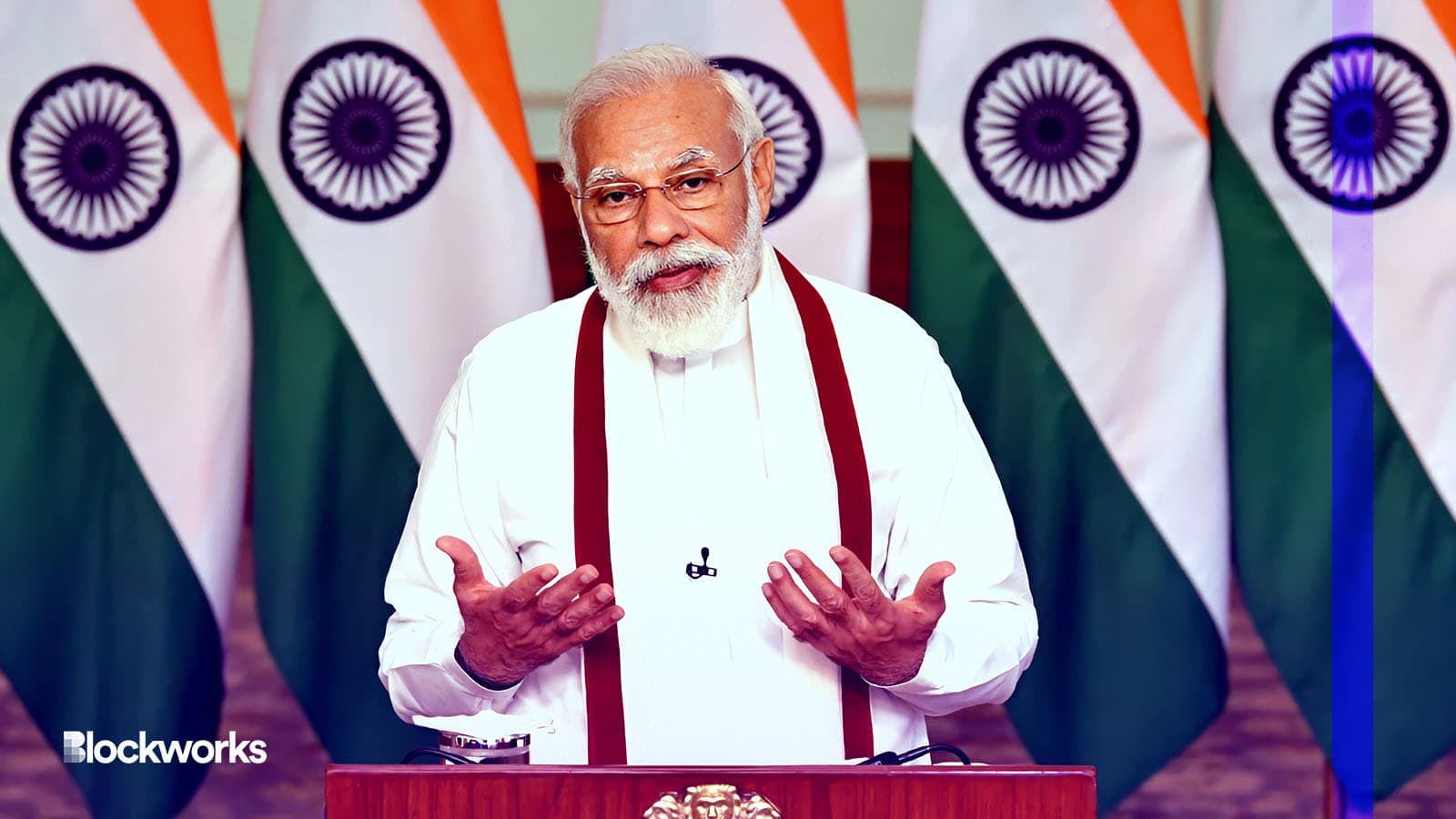Indian PM Modi stresses global unity in regulating crypto
Prime Minister Narendra Modi stressed that the suggested framework should transcend national boundaries and blocs

Amit.pansuriya/Shutterstock, modified by Blockworks
On the concluding day of the B20 summit, Indian Prime Minister Narendra Modi advocated for an international framework to govern cryptocurrencies.
He called on business leaders to actively consider issues surrounding cryptocurrencies and the ethical use of artificial intelligence (AI), emphasizing the importance of responsibly integrating fast-paced technological advancements.
The Business 20 (B20) is an event tied to the G20 Summit, aimed at collecting insights and recommendations from international business leaders to tackle today’s pressing issues.
“The rapid pace of change of technology is a reality — there is no point in ignoring it or wishing it away. Instead, the focus should be on adoption, democratization and a unified approach,” the prime minister said.
He emphasized that any proposed framework ought to be supranational, extending beyond the confines of individual nations or blocs.
“At the same time, the rules, regulations and framework around it should not belong to one country or a group of countries. So not only crypto, but all emerging technologies need a global framework and regulations,” Modi said.
The prime minister drew parallels to the aviation industry, advocating for similar unified regulations in emerging sectors, noting that the aviation field operates under standardized global rules for air traffic control and security.
Modi also stated that businesses ought to prioritize boosting the buying power of a broader population, warning that a self-centered approach could be detrimental.
The leader argued that viewing other nations merely as markets is unsustainable and will ultimately backfire on producer countries. The path ahead, he suggested, is to involve everyone as equal stakeholders.
In India, cryptocurrencies have encountered regulatory skepticism. The central bank governor has compared them to speculative gambling activities.
While the nation had contemplated instituting an outright prohibition on cryptocurrencies, it has ultimately opted to impose high capital gains taxes on crypto profits.
Get the news in your inbox. Explore Blockworks newsletters:
- The Breakdown: Decoding crypto and the markets. Daily.
- 0xResearch: Alpha in your inbox. Think like an analyst.






